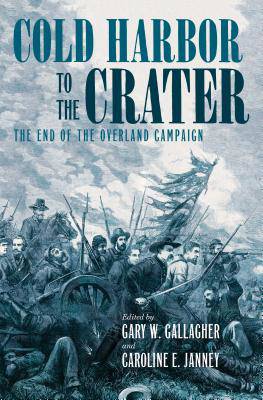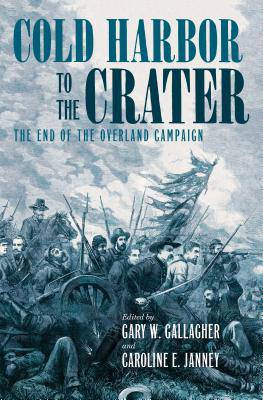
- Retrait gratuit dans votre magasin Club
- 7.000.000 titres dans notre catalogue
- Payer en toute sécurité
- Toujours un magasin près de chez vous
- Retrait gratuit dans votre magasin Club
- 7.000.0000 titres dans notre catalogue
- Payer en toute sécurité
- Toujours un magasin près de chez vous
Cold Harbor to the Crater
The End of the Overland Campaign
55,45 €
+ 110 points
Description
Between the end of May and the beginning of August 1864, Lt. Gen. Ulysses S. Grant and Gen. Robert E. Lee oversaw the transition between the Overland campaign--a remarkable saga of maneuvering and brutal combat--and what became a grueling siege of Petersburg that many months later compelled Confederates to abandon Richmond. Although many historians have marked Grant's crossing of the James River on June 12-15 as the close of the Overland campaign, this volume interprets the fighting from Cold Harbor on June 1-3 through the battle of the Crater on July 30 as the last phase of an operation that could have ended without a prolonged siege. The contributors assess the campaign from a variety of perspectives, examining strategy and tactics, the performances of key commanders on each side, the centrality of field fortifications, political repercussions in the United States and the Confederacy, the experiences of civilians caught in the path of the armies, and how the famous battle of the Crater has resonated in historical memory. As a group, the essays highlight the important connections between the home front and the battlefield, showing some of the ways in which military and nonmilitary affairs played off and influenced one another.
Contributors include Keith S. Bohannon, Stephen Cushman, M. Keith Harris, Robert E. L. Krick, Kevin M. Levin, Kathryn Shively Meier, Gordon C. Rhea, and Joan Waugh.
Contributors include Keith S. Bohannon, Stephen Cushman, M. Keith Harris, Robert E. L. Krick, Kevin M. Levin, Kathryn Shively Meier, Gordon C. Rhea, and Joan Waugh.
Spécifications
Parties prenantes
- Editeur:
Contenu
- Nombre de pages :
- 360
- Langue:
- Anglais
- Collection :
Caractéristiques
- EAN:
- 9781469625331
- Date de parution :
- 28-09-15
- Format:
- Livre relié
- Format numérique:
- Genaaid
- Dimensions :
- 157 mm x 243 mm
- Poids :
- 657 g

Les avis
Nous publions uniquement les avis qui respectent les conditions requises. Consultez nos conditions pour les avis.





